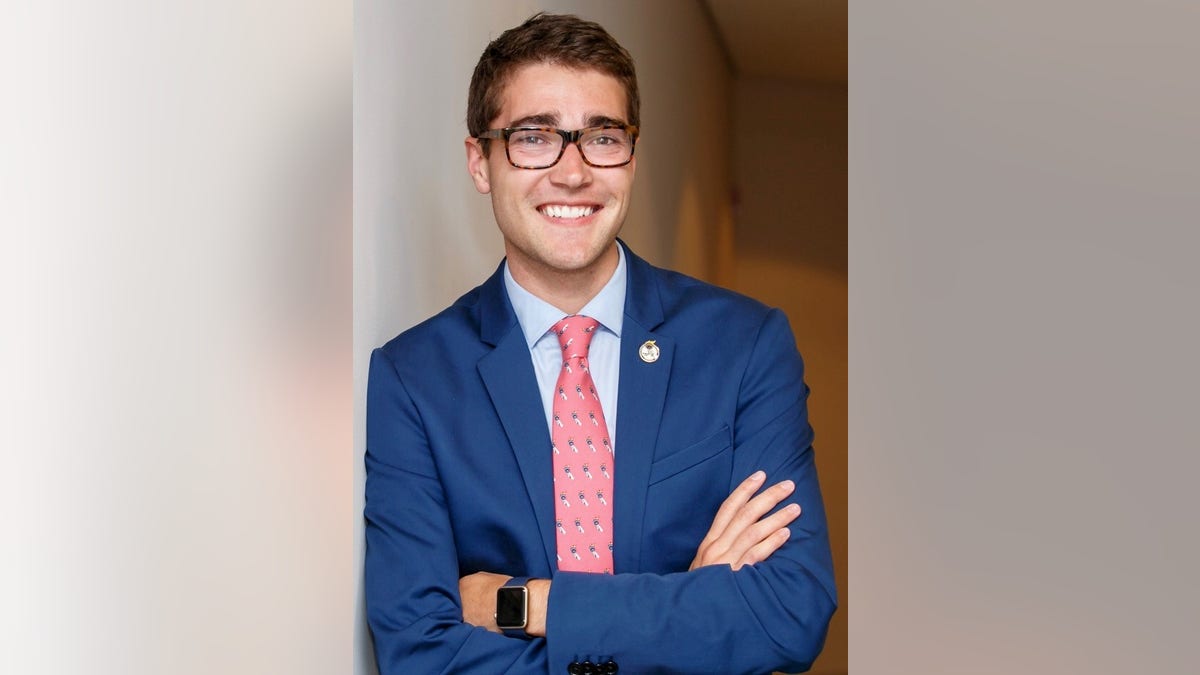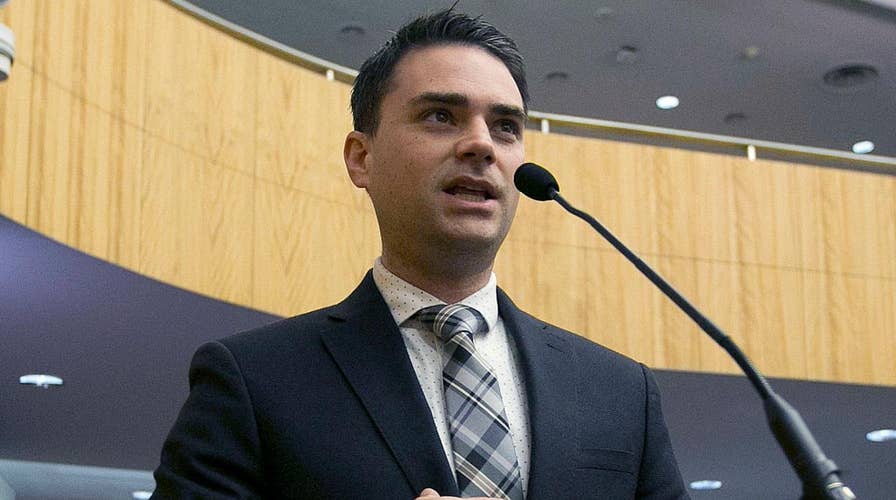UConn implementing review process for Ben Shapiro speech
UConn College Republicans President Tim Sullivan says the university is applying a double standard when it comes to conservative speakers.
An appearance Wednesday evening by a conservative speaker has sparked a free speech controversy at the University of Connecticut, whose handling of the event has been slammed as both biased and overzealous.
Ben Shapiro, a political commentator and author whose 2013 book “Bullies: How the Left’s Culture of Fear and Intimidation Silences Americans,” was a New York Times bestseller, will be speaking at the invitation of a campus Republican group.
But the university approved the group's request for Shapiro's appearance only after holding a so-called pre-event review process that led to the decision to restrict access to the event, and even offer counseling to students who might be offended by it.
And earlier this month, a school official dashed off an email to students alerting them that Shapiro was appearing, adding that “even the thought of an individual coming to campus with the views that Mr. Shapiro expresses can be concerning and even hurtful.”
Republican student groups and Young America’s Foundation, a national group that has handled Shapiro’s talks around the country, charged the university's action leading up to his appearance were overzealous, and biased against conservatives.
“What we saw with their review process that they subjected this lecturer to was limitations on who could attend -- students and professors – where it could take place, an advance guest list,” said Spencer Brown, spokesman for the Young America’s Foundation. “It’s a frivolous level of restrictions.”
Brown said liberal speakers at UConn were not subject to the same level of scrutiny. He said that a recent speech by Anita Hill, the lawyer and scholar who in 1991 testified about sexual harassment before a Senate committee hearing on the nomination of Clarence Thomas to the U.S. Supreme Court, was treated by college officials much differently. In Hill's case, the university was both supportive, and opened her appearance to the public, said Brown.
It’s a frivolous level of restrictions. College campuses for a long time have gotten away with being indoctrination places for leftists.
“College campuses for a long time have gotten away with being indoctrination places for leftists,” Brown told Fox News. “The diversity officer’s email conditioned people to react negatively to opposing ideas.”
Last year, the University of California, Berkeley came under fire by Republicans and conservatives when its executive vice chancellor, Paul Alivisatos, urged that ahead of a planned lecture by Shapiro, students and faculty members seek counseling.

Spencer Brown, spokesman of Young America's Foundation. (Courtesy of Spencer Brown)
University of Connecticut officials insist they do not discriminate based on political ideology. They have told reporters they decided to implement a review process after a speech titled “It Is O.K. To Be White” last November by conservative commentator Lucian Wintrich ended in a scuffle, after a member of audience snatched the speaker’s notes from the lectern, and then Wintrich grabbed her to retrieve his papers. The woman, Catherine Gregory, an adviser at a community college, was arrested and charged with larceny and disorderly conduct.
College officials say it is easier to hold members of the audience accountable if they limit crowd sizes and other conditions.
In a statement to Fox News, college spokeswoman Stephanie Reitz said: “UConn recently updated its event planning review procedures to better ensure that the First Amendment rights of all invited speakers, audience members at their events, and others are respected and protected.”
Asked about the controversial email by the college’s diversity officer, Joelle Murchison, alerting students about Shapiro and describing the event as understandably hurtful, Reitz said: “One issue that’s considered in the course of the pre-event reviews is whether there might be protesters on site, or whether students who disagree with a speaker are aware of ways to express themselves peacefully.”
“In this case, we sent an informational email to a small portion of the student body to let them know of the upcoming event,” Reitz said. “It’s not a ‘warning,’ as it’s been described by some. It’s simply a way to make sure that UConn students know of on-campus programs or services if they want to talk with others about their views.”
Asked if the college has taken similar steps with students who might find events featuring liberal speakers troubling, Reitz said it has. “It’s part of the review process and in fact, the university specifically reached out to the College Republicans about Nathan Robinson’s visit for the same reason,” she said.
New Orleans public defender Robinson will be speaking Wednesday evening at a counter-event, at the invitation of UConn’s Democratic students club. His speech is titled, "Ben Shapiro is not as insightful as he thinks he is."
The procedures are meant to be an objective planning tool to help ensure that events can take place without interruptions or safety issues, and aren’t based on a speaker’s political ideology.
Shapiro, a former Breitbart editor and editor-in-chief of conservative news and commentary site The Daily Wire, challenges the approaches many colleges take to his events. Liberal leanings of colleges is, in fact, one of his themes.
At a college speech, he brought along a diaper and said it was for “self-indulgent pathetic children who can’t handle anyone with an opposing point of view.”
It's not just conservatives who challenge the tensions that arise at colleges over controversial speakers. Many First Amendment experts have been watching campus battles over speakers such as Shapiro with concern.
Brookings Institution senior fellow John Villasenor conducted a survey on free speech last year of 1,500 college and university students and found an overwhelming intolerance of people who express opposing views.
A majority, or 62 percent, of Democrats, and 39 percent of Republicans, said it was acceptable to shout down the speaker.
A fifth of the respondents said they agreed with using physical force to silence a speaker who makes “offensive and hurtful statements.”
A surprisingly large fraction of students believe it is acceptable to act—including resorting to violence—to shut down expression they consider offensive. And a majority of students appear to want an environment that shields them from being exposed to views they might find offensive.








































